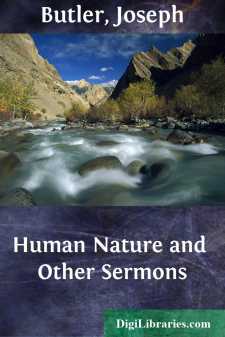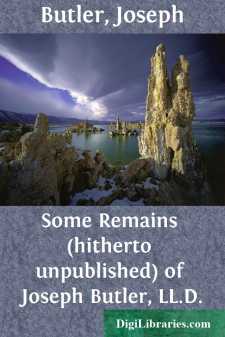Categories
- Antiques & Collectibles 13
- Architecture 36
- Art 48
- Bibles 22
- Biography & Autobiography 813
- Body, Mind & Spirit 142
- Business & Economics 28
- Children's Books 15
- Children's Fiction 12
- Computers 4
- Cooking 94
- Crafts & Hobbies 4
- Drama 346
- Education 46
- Family & Relationships 57
- Fiction 11828
- Games 19
- Gardening 17
- Health & Fitness 34
- History 1377
- House & Home 1
- Humor 147
- Juvenile Fiction 1873
- Juvenile Nonfiction 202
- Language Arts & Disciplines 88
- Law 16
- Literary Collections 686
- Literary Criticism 179
- Mathematics 13
- Medical 41
- Music 40
- Nature 179
- Non-Classifiable 1768
- Performing Arts 7
- Periodicals 1453
- Philosophy 64
- Photography 2
- Poetry 896
- Political Science 203
- Psychology 42
- Reference 154
- Religion 513
- Science 126
- Self-Help 84
- Social Science 81
- Sports & Recreation 34
- Study Aids 3
- Technology & Engineering 59
- Transportation 23
- Travel 463
- True Crime 29
Human Nature and Other Sermons
by: Joseph Butler
Description:
Excerpt
INTRODUCTION.
Joseph Butler was born in 1692, youngest of eight children of a linendraper at Wantage, in Berkshire. His father was a Presbyterian, and after education at the Wantage Free Grammar School Joseph Butler was sent to be educated for the Presbyterian ministry in a training academy at Gloucester, which was afterwards removed to Tewkesbury. There he had a friend and comrade, Secker, who afterwards became Archbishop of Canterbury. Butler and Secker inquired actively, and there was foreshadowing of his future in the fact that in 1713, at the age of twenty-one, Butler was engaged in anonymous discussion with Samuel Clarke upon his book on the à priori demonstration of the Divine Existence and Attributes.
When the time drew near for call to the ministry, Butler, like his friend Secker, had reasoned himself into accordance with the teaching of the Church of England. Butler’s father did not oppose his strong desire to enter the Church, and he was entered in 1714 at Oriel College, Oxford. At college a strong friendship was established between Butler and a fellow-student, Edward Talbot, whose father was a Bishop, formerly of Oxford and Salisbury, then of Durham. Through Talbot’s influence Butler obtained in 1718 the office of Preacher in the Rolls Chapel, which he held for the next eight years. In 1722 Talbot died, and on his death-bed urged his father on behalf of his friend Butler. The Bishop accordingly presented Joseph Butler to the living of Houghton-le-Spring. But it was found that costs of dilapidations were beyond his means at Houghton, and Butler had a dangerous regard for building works. He was preferred two years afterwards to the living of Stanhope, which then became vacant, and which yielded a substantial income. Butler sought nothing for himself, his simplicity of character, real worth, and rare intellectual power, secured him friends, and the love of two of them—Talbot first, and afterwards Secker, who made his own way in the Church, and became strong enough to put his friend as well as himself in the way of worldly advancement, secured for Butler all the patronage he had, until the Queen also became his active friend.
Joseph Butler was seven years at Stanhope, quietly devoted to his parish duties, preaching, studying, and writing his “Analogy of Religion, Natural and Revealed, to the Constitution and Course of Nature.” In 1727, while still at Stanhope, he was appointed to a stall in Durham Cathedral. Secker, having become chaplain to the Queen, encouraged her in admiration of Butler’s sermons. He told her that the author was not dead, but buried, and secured her active interest in his behalf. From Talbot, who had become Lord Chancellor, Secker had no difficulty in obtaining for Butler a chaplaincy which exempted him from the necessity of residence at Stanhope. Butler, in accepting it, stipulated for permission to live and work in his parish for six months in every year. Next he was made chaplain to the King, and Rector of St....



